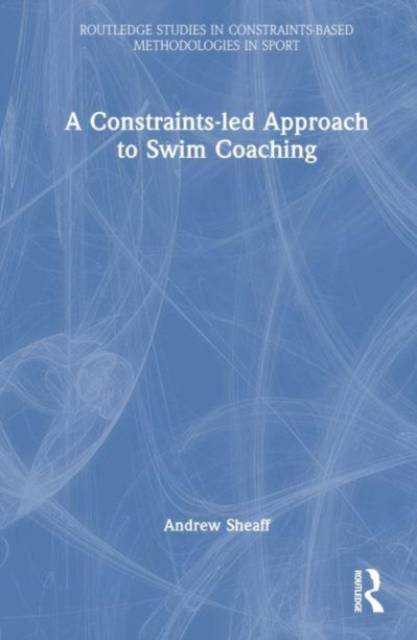
- Retrait gratuit dans votre magasin Club
- 7.000.000 titres dans notre catalogue
- Payer en toute sécurité
- Toujours un magasin près de chez vous
- Retrait gratuit dans votre magasin Club
- 7.000.0000 titres dans notre catalogue
- Payer en toute sécurité
- Toujours un magasin près de chez vous
Description
Motor skill acquisition and athlete development practices are rapidly evolving. Positioned at the forefront of this evolution, the constraints-led approach encourages practitioners to consider the athlete as a whole person, with unique traits, abilities, and capacities. Accordingly, an athlete's competitive success lies in the practitioner's ability to adapt their programming to the unique needs of each athlete and to develop an understanding of the athlete-environment relationship. A Constraints-Led Approach to Swim Coaching applies contemporary motor skill acquisition and athlete development practices to swimming. This book encourages coaches to reconsider how they approach skill development in a sport that requires considerable physical training and highly efficient movement. It presents a framework for identifying the various constraints that determine the ability to perform at a high level. It then offers coaches practical examples to navigate the manipulation of constraints to support the development of physical capacities and the ability to effectively utilize those capacities through efficient movement. These frameworks are broadly inclusive to the global sports programming market. This book is written through a "conversive" voice and is accessible to a broad audience interested in athlete development and programming such as coaches, sport scientists, support staff, athletes, and parents. At the same time, academics and students in the areas of sport coaching, biomechanics, motor skill acquisition, strength and conditioning, and related disciplines will find interest in the insights provided from this underrepresented niche in sports.
Spécifications
Parties prenantes
- Auteur(s) :
- Editeur:
Contenu
- Nombre de pages :
- 314
- Langue:
- Anglais
- Collection :
Caractéristiques
- EAN:
- 9780367724795
- Date de parution :
- 04-07-23
- Format:
- Livre relié
- Format numérique:
- Genaaid
- Dimensions :
- 156 mm x 234 mm
- Poids :
- 639 g

Les avis
Nous publions uniquement les avis qui respectent les conditions requises. Consultez nos conditions pour les avis.






